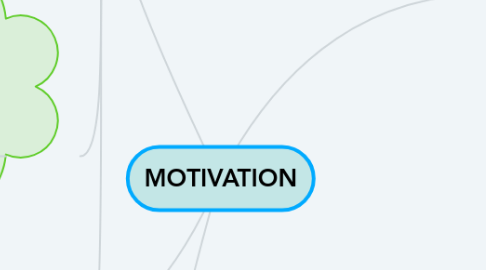
1. Reach Goals
1.1. Long-term Goals
1.1.1. Something to do with a wish to get a better job at some future date, or a desire to be able to communicate with members of a target language community
1.2. Short-term Goals
1.2.1. Things as wanting to pass and end-of-semester test or wanting to finish a unit in a book.
2. Motivational Differences
2.1. ADOLESCENTS: Adolescents are perhaps the most interesting students to teach, but they can also present the teacher with more problems than any other age group. They are often brittle.
2.2. CHILDREN: Children are curious, and this in itself is motivating. At the same time span os attentio os concentration is less than that of an adult. Children need frequent changes os activity.
2.3. ADULT BEGINNERS: Adult beginners are in some ways the easiest people to teach. They will often succeed very quicly.
2.4. ADULT INTERMEDIATE STUDENTS: Adult intermediate students may well be motivated extrinsically. Success may be motivating, and the perceptions og having ''more advances English'' may be a primary goal. Intermediate students already know a lot and may not perceive any progress.
2.5. ADULT ADVANCED STUDENTS: These students are often highly motivated. Like some intermediate students, they will find progress more difficult to perceive.
3. Internal Drive or Desire
4. Two main Categories
4.1. Extrinsic Motivation
4.1.1. Factors outside the classroom
4.1.1.1. INTEGRATIVE MOTIVATION: Students need to be attracted by the culture of the target language community.
4.1.1.2. INSTRUMENTAL MOTIVATION: Students believe that mastery of the target language will be instrumental in getting them a better job, position or status.
4.2. Intrinsic Motivation
4.2.1. Factors inside the classroom
4.2.1.1. PHYSICAL CONDITIONS: Classrooms that are badly lit and overcrowded can be escessively de-motivating.
4.2.1.2. METHOD: The method must hace some effect on they motivating. If they find it deadly boring they will probably become de-motivated, whereas if they have confidence in the method they will find it motivating.
4.2.1.3. THE TEACHER: Teachers clearly need to be able to show that they know their subject. They should be able to give clear instructions and examples and as far as possible have answers to the students questions.
4.2.1.4. SUCCESS: Succes os lack of it plays a visit part in the motivational drive of a student. Both complete failure and complete success may be de-motivating. It will be the teacher's job to set goals and tasks at which most of his or her students can be successful.
